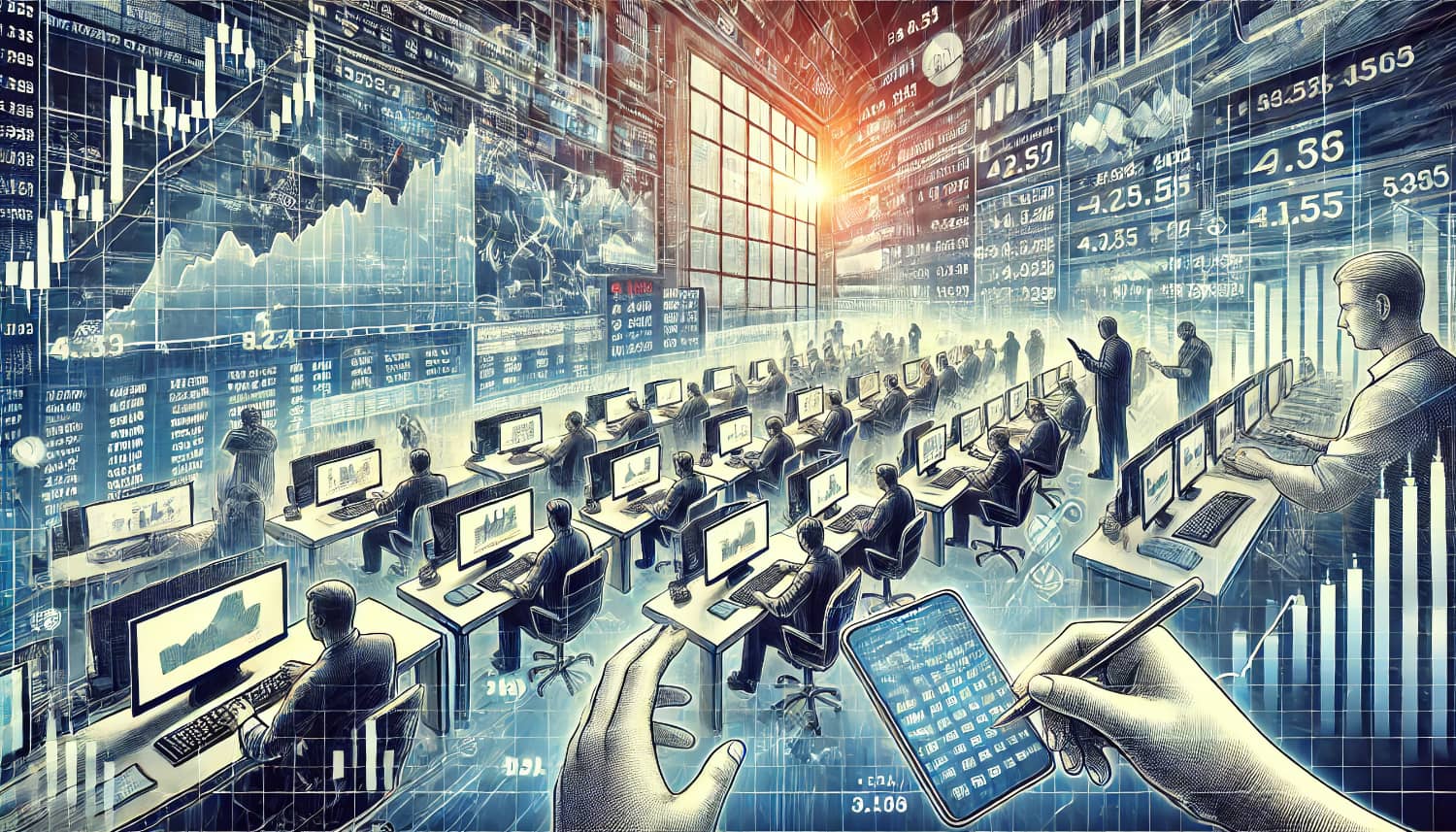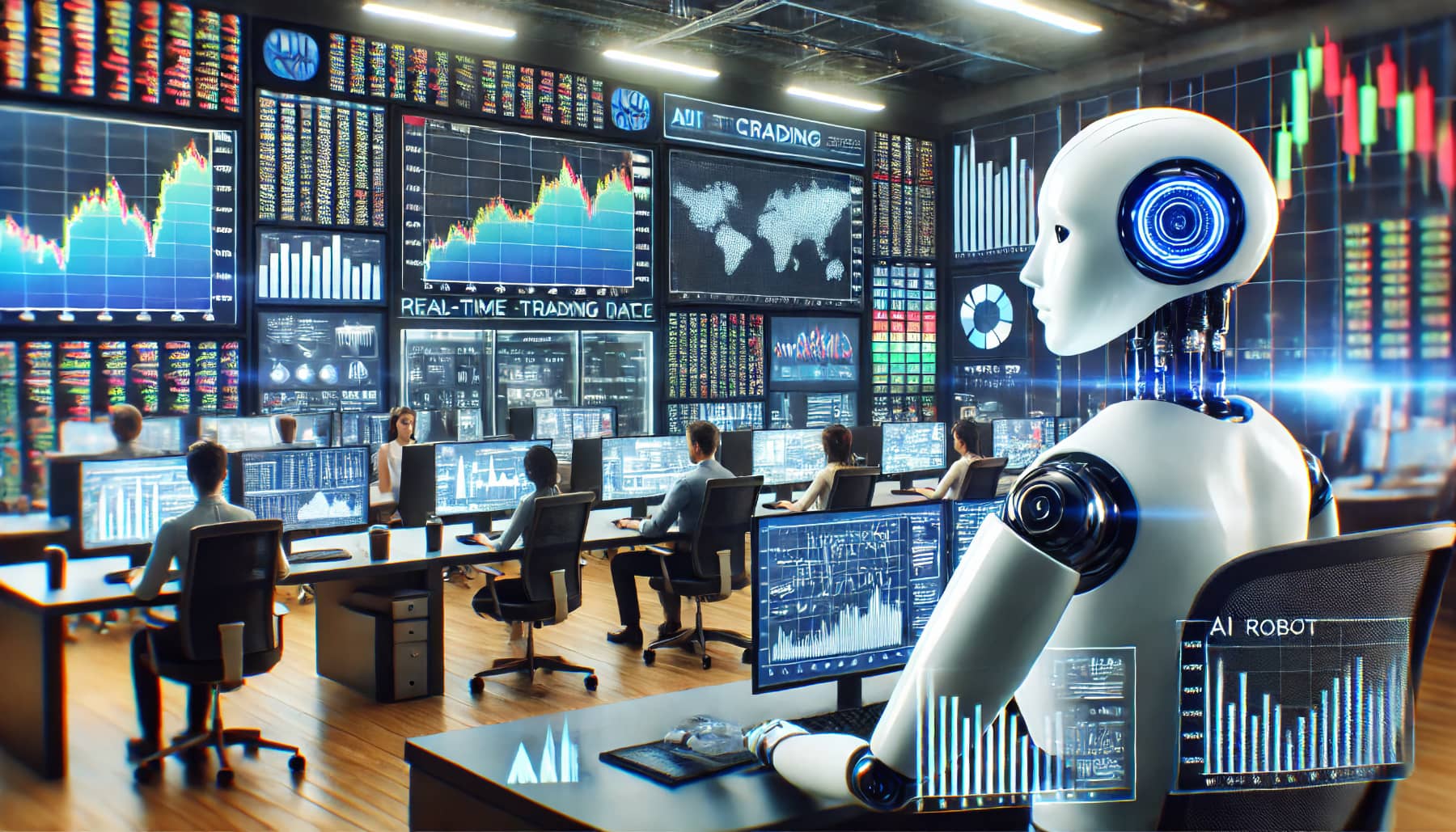In recent years, artificial intelligence (AI) has emerged as a transformative force across various industries, and the world of finance is no exception. The stock market, long driven by human intuition and analysis, is now experiencing a profound shift as AI technologies reshape investment strategies and trading practices. This article delves into the exciting realm of AI in equity investment, exploring how machine learning algorithms and advanced analytics are revolutionizing the way we approach stock trading.
The Evolution of AI in Stock Trading
The journey of AI in the stock market began decades ago with the introduction of computer-assisted trading. However, the real revolution started with the advent of algorithmic trading in the 1980s. This approach used mathematical models with set rules and human oversight to execute trades. Fast forward to today, and we're witnessing a new era where AI algorithms can process vast amounts of data in real-time, making split-second decisions that were once the domain of human traders.
From Intuition to Data-Driven Decisions
Traditionally, stock picking relied heavily on fundamental analysis, technical analysis, and often, a trader's gut feeling. While these methods still have their place, AI has introduced a new paradigm of data-driven decision-making. Machine learning algorithms can analyze millions of data points simultaneously, identifying patterns and trends that might escape even the most experienced human analysts.

How AI Works in Stock Trading
AI in equity investment operates through various sophisticated techniques and approaches. Let's explore some of the key methods:
Quantitative Trading
Quantitative trading, or quant trading, uses AI to analyze the price and volume of stocks, identifying optimal investment opportunities. This approach is particularly useful for large-scale transactions involving hundreds of thousands of shares.
High-Frequency Trading
High-frequency trading (HFT) leverages powerful computers to execute millions of trades in seconds. AI algorithms monitor multiple markets simultaneously, capitalizing on tiny price discrepancies and generating profits through the sheer volume of transactions.
Sentiment Analysis
One of the most intriguing applications of AI in stock trading is sentiment analysis. By processing vast amounts of textual data from news articles, social media, and financial reports, AI can gauge market sentiment and predict potential market movements.

AI Trading Tools and Technologies
The AI revolution in equity investment has given rise to a variety of sophisticated tools:
AI-powered portfolio managers: These tools autonomously select assets, create portfolios, and continually monitor and adjust them based on market conditions.
Trading robots: Software that executes trades based on predetermined rules, operating without human intervention once set up.
AI signals: Programs that alert investors when specific stock conditions are met, allowing for timely decision-making.
Strategy builders: AI tools that investors can train to follow custom trading rules, with the ability to backtest strategies using historical data.
The Impact of AI on Stock Market Dynamics
The integration of AI in equity investment is reshaping the stock market landscape in several ways:
Enhanced Efficiency and Speed
AI algorithms can process information and execute trades at speeds impossible for human traders. This has led to increased market efficiency, with prices reflecting new information almost instantaneously.
Improved Risk Management
AI excels at risk modeling and management. By analyzing historical data and current market conditions, AI systems can predict potential risks and adjust investment strategies accordingly, helping to mitigate losses.
Democratization of Advanced Trading Strategies
Platforms like Danelfin are making AI-driven analytics accessible to retail investors, leveling the playing field that was once dominated by institutional investors with deep pockets.
Challenges and Considerations
While the benefits of AI in equity investment are substantial, there are also challenges to consider:
Transparency issues: The complexity of AI algorithms can make it difficult to understand how trading decisions are made, raising concerns about accountability.
Over-reliance on historical data: AI models heavily rely on past data, which may not always predict future market behavior, especially during unprecedented events.
Cybersecurity risks: As trading becomes increasingly automated, the potential impact of cyberattacks on AI systems becomes a significant concern.
Regulatory challenges: The rapid advancement of AI in trading is outpacing current regulatory frameworks, raising questions about fairness and market stability.
The Future of AI in Equity Investment
As we look to the future, it's clear that AI will play an increasingly significant role in equity investment. We can expect to see more sophisticated AI-powered ETFs, advanced robo-advisors, and even greater integration of AI in traditional financial institutions.
However, the human element in trading is unlikely to disappear entirely. Instead, we're moving towards a hybrid model where human intuition and creativity work in tandem with AI's data processing and pattern recognition capabilities.
In conclusion, AI is undeniably transforming the landscape of equity investment. As investors and market participants, staying informed about these technological advancements is crucial. The future of stock trading lies in the intelligent integration of AI tools with human expertise, promising more efficient, data-driven, and potentially more profitable investment strategies.


